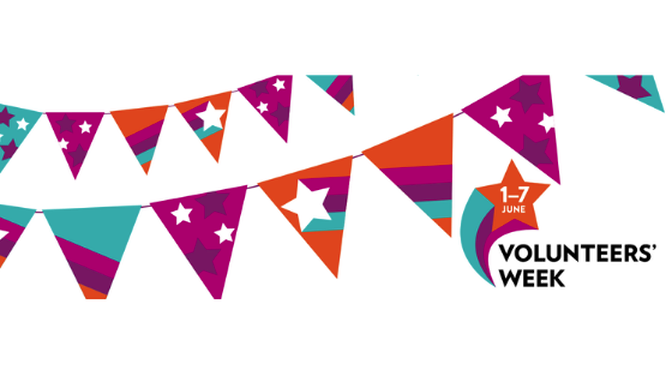The social media world seems awash with models illustrating the different psychological stages we humans go through during a crisis; each model broadly covers a beginning, a middle and an end stage. Models are all well and good, of course, and yet as we start to take tentative steps towards easing the lockdown here in the UK, last week my attention was being pulled by something far more tangible: it was National Volunteers’ Week.
National Volunteers’ Week is not a new invention, nor is it linked to Covid-19. Early records show Canada introduced the idea in 1943 as a means of recognising the contribution of the women holding the fort during the Second World War. In the USA it was kicked off in 1974 when Richard Nixon signed off Presidential Proclamation 4288.
Volunteering is valued more than ever during a crisis. It can also help move us, functionally, through the different stages of processing and dealing with crises, be they global, local or personal. Many who volunteer for a specific organisation or cause, do so because of a personal experience or trauma associated with that cause. This personal meaning can create a different kind of connection with the volunteering tasks than we get through our day jobs. Helping others less fortunate than ourselves brings with it a feelgood factor, a sense of being able to do something practical and for some, even a sense of closure.
In my very personal experience the benefits of volunteering go much, much deeper. Later this year I will have officially been a volunteer with Breast Cancer Care* for a quarter of a century; aside from it being the hardest ‘job’ interview I’ve ever been subjected to, it has also created purpose, direction and some very random stories and opportunities that otherwise would not have happened. Being a peer supporter, a ‘helpliner’, a trainer, a selection interviewer, a counsellor, someone’s final conversation, these experiences do not happen in your standard 9-5 job. Each of these roles is accompanied by its own emotional rollercoaster, quantum learning and clarity about what I’m here to do. Each of these roles propels me forwards along the road to healing – healing from my own breast cancer (twice) and the associated survivor syndrome.
The jury is out on who derives more benefit from volunteering… the volunteer or the recipient. This is not some thinly veiled attempt at self-aggrandisement, it is meant quite seriously. Research abounds on the mental health benefits of helping others, volunteering one’s time and energy. On a personal (and much less serious) note, my life as a Breast Cancer Care volunteer has allowed me to:
Be involved in a photoshoot in Covent Garden at 7am dressed only in a Breast Cancer Care nightshirt with my heartthrob Ian McShane (of Lovejoy fame)
Be interviewed by Mary McCartney (Paul’s other daughter), Lorraine Kelly and Alice Beer among others
Enjoy a glass of wine at a Breast Cancer Care benefit concert with my all-time girl-crush Annie Lennox
As the country heads towards the next phase of the current crisis, where the psychologists predict we move from uncertainty and just getting by to re-orientation, re-focus and re-energising, perhaps the voluntary sector and your mental health could become unexpected beneficiaries?
If you do volunteer, remember to ask yourself what skills you’ve gained. How has this changed your sense of self-identity? Most importantly, give yourself due recognition for using existing skills in new ways or learning completely new ones.
*Breast Cancer Care have since merged with Breast Cancer Now, resulting in the change of name you’ll see on the linked website.
